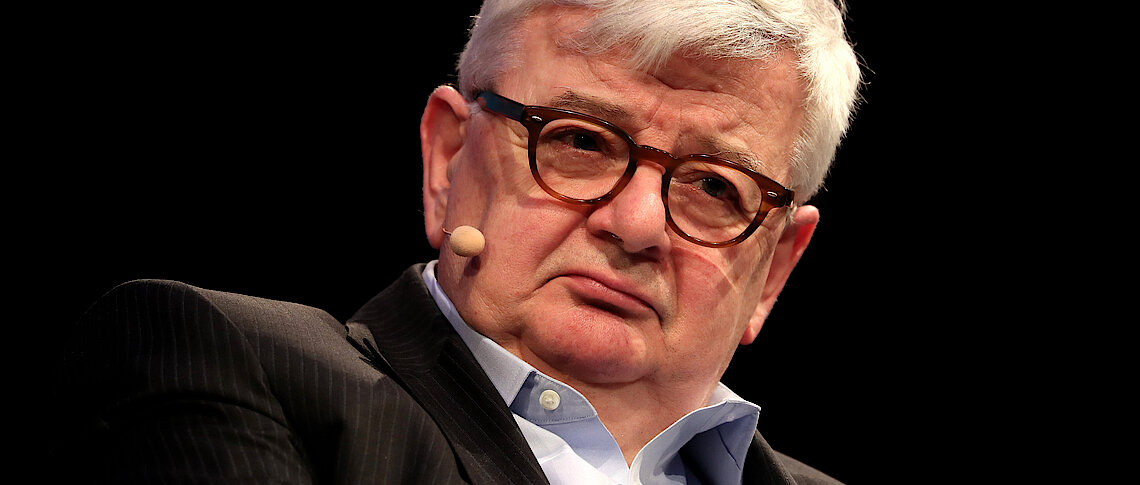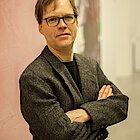In 2005, when Germans voted the leftist Social Democrat-Green coalition out of office, Green politician Joschka Fischer stepped down as foreign minister, and shortly thereafter retired from German politics altogether. In his seven years at the foreign ministry, Fischer proved himself an agile statesman who presided over an intensely dynamic period of foreign policy.
During his tenure, a recently united Germany, unsure of its place in the world, established itself as a competent middleweight in global affairs: one loyal to Atlantic allies but not too timid to go against its long-time patron, Washington, most spectacularly on participating in the Iraq war. Germany shed its qualms about military interventions abroad – though only together with allies – in troubled regions such as the Balkans and Afghanistan. Fischer, a passionate European, oversaw the expansion of the EU to Central Europe, a process put in motion by his predecessors but one that filled Fischer, the child of expelled Hungarian Germans, with particular pride.
Many observers were curious about what he’d do next. After all, he was healthy and held in high esteem. The out-of-work diplomat fit the bill for a job such as EU or UN envoy to the Middle East or even EU foreign minister. If not an official post, then maybe, like Al Gore, he’d devote his post-politico life to a worthy cause such as climate change.
Insightful contributions
But no. After a year lecturing at Princeton University, Fischer sold his name to BMW and the Nabucco Pipeline and has since, in addition to other private-sector ventures, opined regularly in German media and written four books, adding to the dozen or so already to his name.
Even if Fischer’s skills as a seasoned diplomat have been squandered, his contributions to the public discourse have been insightful and auspicious. This is the case with his most recent tome, Der Abstieg des Westens: Europa in der neuen Weltordnung des 21. Jahrhunderts, or The Decline of the West, where Fischer offers a bird’s-eye view of the world in the early 21st century and a keen analysis of its dilemmas, which he believes are profound, complex and alarming – but not hopeless.
Just 30 years after the West’s greatest triumph – communism’s collapse and Western-style democracy’s nearly international embrace – it has been laid low, by itself, Fischer argues. The West, essentially Europe and the US, is in the process of committing suicide for no good reason and will succeed if liberal-minded internationalists don’t devise significantly better, more attractive narratives for the future. But, damningly, Fischer says they are nowhere to be seen.
The Brexit vote and Donald Trump’s election marked critical turning points when Europe and the US signalled they were deadly serious about abandoning what’s left of the postwar consensus, Fischer claims. With the US and UK having removed themselves from the equation, EU Europe is the last refuge of ‘the West’ and must avoid the same fate. The remnants of the West won’t survive another such annus horribilis as 2017.
This return to inward-looking, nativist nationalism and strongarm regimes flummoxes Fischer, who – as a classic, post-68 West German liberal – disparages them as backward-looking mythology, ‘fantasy’ and ‘hallucination’, and a certain recipe for Europe’s decline into irrelevance. ‘Neo-nationalism’ is his term for the myopic, self-referential national populism of today, which does not, unlike that of the past, promote an expansionist agenda beyond current borders. Today’s neo-nationalism is an expression of weakness, not of strength, he argues.
Without the EU, as tiny independent national states, Europeans would be completely marginalised in global trade and foreign affairs, and without the multilateral security architecture that has served them so well since World War II. ‘The real dilemma for the Europeans isn’t [the question of] the EU or the nation state,’ he argues. Rather it’s a choice between being one regional power among several in the world or ‘the disappearance of Europeans from the world stage and permanent heteronomy in an uncertain future’.
A new world order
As much as Fischer appreciates the West’s postwar role in domesticating Germany, he locates the key factors for its present decrepit condition in its inability to transform itself when the world changed in the aftermath of the Cold War. There was a window of opportunity for new visions of a post-Cold War order that culled the best from the postwar decades, but substantially rethought and reorganised so that other regions and new states could participate in them too.
The West had a chance to lead 1990s Russia into a new fold, for example, but bungled it by treating Russia as a pathetic loser rather than as a partner. The upshot: a newly divided Europe, an aggressive Russia, ineffective security frameworks, outmoded institutions, frozen conflicts across Eastern Europe, and frightened citizens from the Urals to the Atlantic. The leaders of the day failed to remake the world order so that developing regions could participate in prosperity and global governance, sowing the seeds of the migration crises that have only just begun. And, in the absence of new treaties, nuclear proliferation among states is now more precarious than ever.
Moreover, while Fischer stands by global trade and the free-market economy, he underscores that the Anglo-Saxon neoliberal brand has wrought havoc on social cohesion on both sides of the Atlantic, and with the exorbitant, senseless Iraq war has undermined ‘the elites’ associated with liberal democracy. Shaken citizens react to globalisation’s disruptive energy in exactly the wrong way: by retreating into wishful thinking about an idyllic past that never existed rather than engaging with the complicated, digital, globalised, climate-changed future. The populist politicos exploit it.
Twenty-first-century Europe, passive and uninspired, is as responsible as the US for this grim state of affairs. The EU needs to transcend its current status as halfway house between a closely bound federation and a confederation of nation states, argues Fischer.
Towards a two-speed Europe?
Fischer is wholeheartedly behind French president Emmanuel Macron’s proposals to reform the EU by tackling its shortcomings head-on, but it is Angela Merkel’s Germany that can’t see far enough beyond its own borders to team up with Macron. The only solution for now, argues Fischer, is a two-speed Europe in which smaller circles of member states forge ahead in different fields, such as the eurozone, and the stragglers have the choice to catch up later or simply stay put. It’s not ideal, but the EU is too fractured now to do anything else, he says.
The alternative to a reinvigorated EU is forbidding. A Germany unbound in the centre of Europe, perhaps with Russia as its ally of choice, isn’t pure fantasy, Fischer claims, it’s an option with strong supporters. European states may opt for either a Putinesque or a China-style solution, the former being aggressive nationalism, the latter an authoritarian regime that guarantees prosperity and security in return for obedience. China will be the (former) West’s biggest challenge in many ways.
The neo-nationalists, he points out, are an organised movement. There has to be a stronger, much larger, more inspired countermovement from internationalists. One bit of timely advice is a warning about the ‘opportunism of the middle’: when centrist forces attempt to defeat the hard right by partially taking over their xenophobic and populist programmes. This simply makes illiberal ideas and parties acceptable to the establishment and opens the way for them to come to power, first in a coalition such as in Austria, then on their own. This is what is happening in Germany today: the Christian democrats are bending over backwards to mimic the hard-right Alternative for Germany. The result is that the latter’s numbers inch up while those of the middle shrink.
Maybe in his next book, Fischer will himself put forward a few inspired visions, and a rough idea of how to realise them. Should they be picked up on, that would be a contribution as valuable as any an ex-politician could make. But for that to happen, Fischer is going to have to come out from behind his desk and enter the fray.






